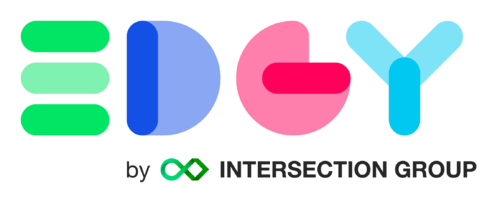(→Facets) |
m (→Facet Elements) |
||
| Line 25: | Line 25: | ||
====[[Facet Elements]]==== | ====[[Facet Elements]]==== | ||
'''<span style="color: #24e36a;">Identity Elements</span>''' | |||
*[[Purpose]] | |||
*[[Story]] | |||
*[[Content]] | |||
'''<span style="color: #fc145e;">Experience Elements</span>''' | |||
*[[Task]] | |||
*[[Journey]] | |||
*[[Channel]] | |||
'''<span style="color: #1b56e2;">Architecture Elements</span>''' | |||
*[[Capability]] | |||
*[[Process]] | |||
*[[Asset]] | |||
====[[Intersection Elements]]==== | ====[[Intersection Elements]]==== | ||
Revision as of 19:00, 11 January 2023
We never really understand each other, do we? The process architect ignored your well-researched customer journey map. The executive couldn't relate to your strategic product roadmap. The organisation designer failed to see the impact of that messed up application architecture you found.
If this sounds familiar, EDGY is for you. Introducing a simple but powerful graphical language everybody can understand and relate to, EDGY enables designers, architects and change makers to co-design a coherent enterprise by identifying the most impactful perspectives and translating between them. Well-defined, reusable Enterprise Elements turn a complex enterprise into a set of interconnected parts, ready to be designed, mapped and transformed.
We all love our maps and diagrams. It's time to make them talk to each other.
Introduction
Facets
Enterprise Design Facets
Elements
Enterprise Elements
Base Elements
Facet Elements
Identity Elements
Experience Elements
Architecture Elements
